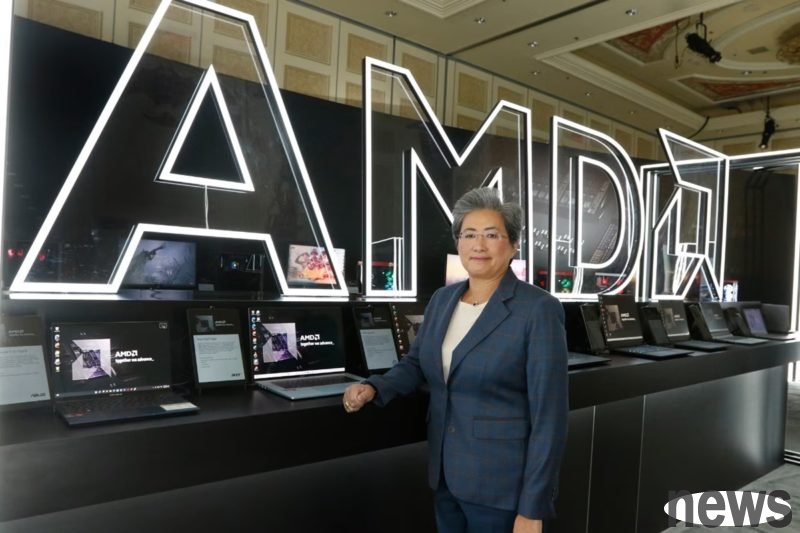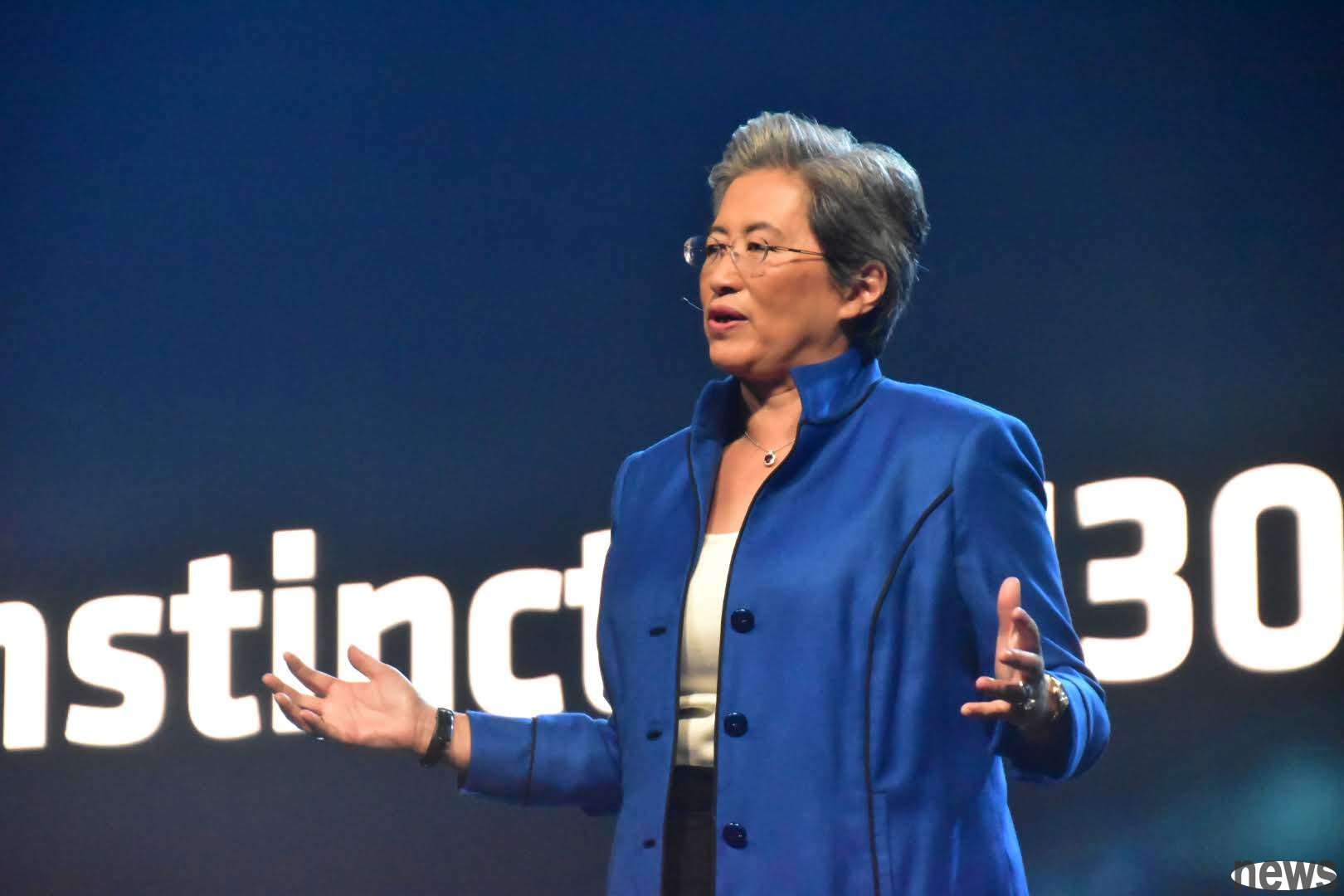
In an exclusive interview with foreign media CNBC on Wednesday, Lisa Su, CEO of chip maker AMD, comprehensively refuted market concerns about technology giants’ ultra-high spending in the field of artificial intelligence (AI). She also strongly called such investments the right gamble. Su Zifeng’s views not only downplayed concerns about a possible bubble in the AI market, but also redefined the potential of the AI computing market, characterizing this change as a trillion-dollar revolution. Spurred by the strong remarks and optimistic growth forecast, AMD's stock price soared 9% on the day.
Faced with the host’s doubts about the authenticity of AI demand and OpenAI’s huge losses, Su Zifeng’s argument was firm and specific. She emphasized that the underlying logic of this revolution is that computing equals wisdom. Since the demand for "wisdom" is infinite, the demand for "computation" is naturally infinite. This is a fundamental revolution. She also revealed that a few years ago, the industry thought that the AI accelerator market would be a huge number if it reached $300 billion. However, AMD now predicts that the market will exceed $1 trillion by 2030.
Su Zifeng pointed out that in the past 12 months, all large cloud customers have personally experienced and seen a turning point, which proves that AI is bringing real productivity. This is why businesses can clearly see a return on their spend.
In terms of financial forecasts, AMD has shown great ambition and confidence. Su Zifeng said at the first analyst day in three years that AMD expects the company's revenue to grow at an annual rate of 35% over the next three to five years due to insatiable demand for AI chips. Looking more specifically at the highly competitive data center AI chip industry, AMD expects its market share to reach double digits within the next three to five years. This is a strong hint that AMD will take market share from a market currently dominated by NVIDIA (Nvidia).
Reminder: Lisa Su doesn’t do hype. You can expect her to deliver on these projections. $AMD pic.twitter.com/gGQoydZ5Vn
— Gregory, FTA (@gregory_FTA) November 11, 2025
Faced with NVIDIA's 90% market share in the AI market, Su Zifeng revealed AMD's clear strategy, which is a pincer-shaped offensive that will be a two-pronged approach to seize the market. AMD is forming in-depth alliances with many major technology manufacturers, including OpenAI, Meta, Oracle, etc., with the goal of achieving "1+1&>3" synergy and uniting all major manufacturers who want to get rid of NVIDIA's control to jointly create new industry standards. In particular, Su Zifeng emphasized that AI is for everyone. Although the high-end market does require the latest and most powerful chips like the MI350, the vast mainstream market, such as enterprises fine-tuning models or executing small and medium-sized models, requires extremely reliable and stable chips and does not need the latest models at all.
She hinted that AMD must also fully absorb the huge market created by previous generation chips such as NVIDIA's H100 or A100. These chip assets can be used for 5 to 6 years, or even longer, which is equivalent to opening up a second battlefield for mainstream enterprises besides high-end.

Faced with the host’s doubts about the risks of AMD’s implementation of the new architecture, and recalling AMD’s past history of being a follower of Intel, Su Zifeng showed full domineering power. She explained how AMD defeated Intel by making the right strategic bet at a technological turning point and betting heavily on high-performance computing. When she took over, AMD's server CPU market share was only 1%. It has now reached 40%, with the goal of surpassing 50% and becoming the number one.
As for how to beat NVIDIA, Su Zifeng firmly stated that we have built an execution machine. She emphasized that AMD has invested up to $100 billion in the past five years (including $60 billion in acquisitions such as Xilinx and ZT Systems) and is very confident in the company's ability to execute. Therefore, the key graphics shown by CNBC in the interview perfectly summarized Su Zifeng’s ten years of leadership results. The results are a ten-year performance of +12,500% for AMD stock compared to just +17.96% for Intel.
However, in recent trading days, the actions of several heavyweight investors have also exacerbated the complexity of market sentiment. Prominent short seller Michael Burry revealed last week that he had made short bets on software maker Palantir and NVIDIA. Just this week, Michael Burry even accused hyperscale cloud computing companies of underestimating depreciation expenses by extending the life cycle of chips, saying that this is one of the most common frauds in modern times.
As for this, Japanese technology group Softbank announced this week that it had sold nearly $6 billion of its NVIDIA holdings in October to support its other investments in the AI field, including a substantial investment in OpenAI, exacerbating market concerns.. In this regard, Su Zifeng expressed respect for the actions of SoftBank Group CEO Masayoshi Son. But she emphasized that the AI ecosystem is currently at a stage where people are making bets and deciding what bets they want to make. Therefore, the key to success is deciding which part of the market you want to bet on.